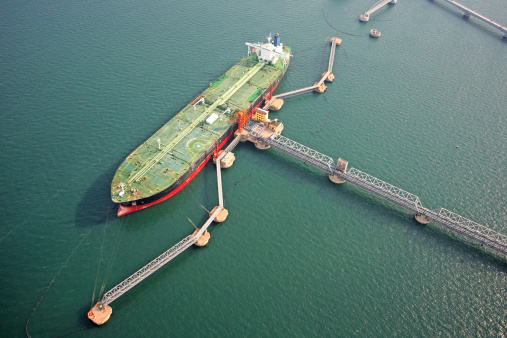
This is not exactly news. The BIS had approved in June requests from Enterprise Products Partners L.P. (NYSE: EPD) and Pioneer Natural Resources Inc. (NYSE: PXD) to export the minimally refined condensates. Enbridge Inc. (NYSE: ENB) and Valero Corp. (NYSE: VLO) had received BIS permission in April to re-export crude from Canada that had been imported into the United States.
The news is that the agency has spelled out for the first time (in an FAQ of all places) what the rules are. The agency defines crude oil as liquid hydrocarbons that have not passed through a distillation tower. The definition includes “reconstituted crude petroleum, and lease condensate and liquid hydrocarbons produced from tar sands, gilsonate, and oil shale.” These may not be exported.
What may be exported are lease condensates that have been “processed through a crude oil distillation tower.” That passage transforms the unexportable crude into an exportable refined petroleum product. As the BIS notes, “Petroleum products are subject to few export restrictions.”
Why now after months of dithering around? Could it be that the Obama administration has figured out that exporting near-crude is more likely to keep crude oil costs low than it is to raise them. If U.S. crude from shale plays in North Dakota can get into the international market, and the Bakken producers can keep their costs under control, the United States may be able to take a bit of market share away from the Saudis.
At one time earlier this year when oil prices were climbing, some suggested that a series of scheduled releases from the U.S. Strategic Petroleum Reserve would push crude prices lower. The producers in the North Dakota and Texas accomplished the same thing without government intervention.
ALSO READ: Top 5 Producers in North Dakota’s Bakken Field
Thank you for reading! Have some feedback for us?
Contact the 24/7 Wall St. editorial team.



